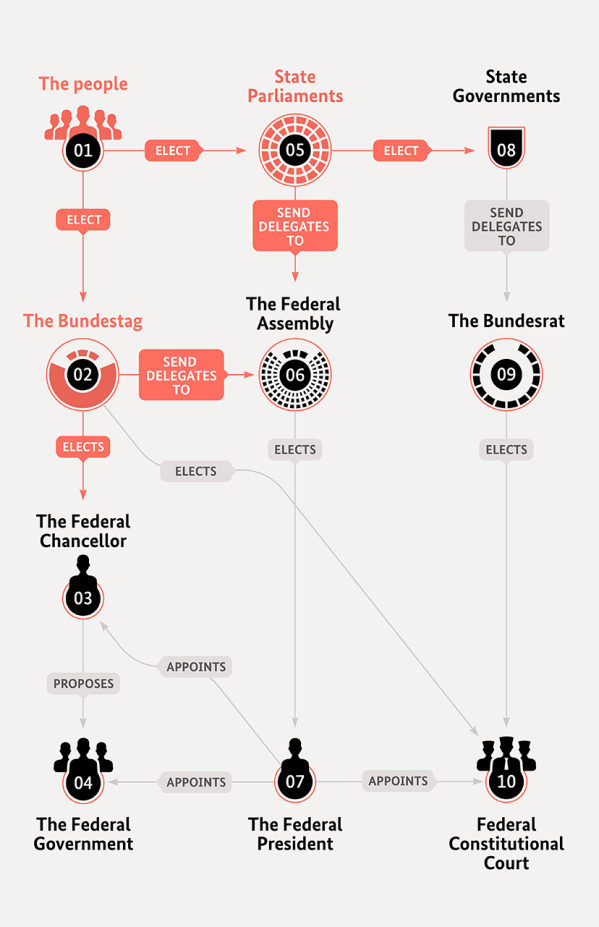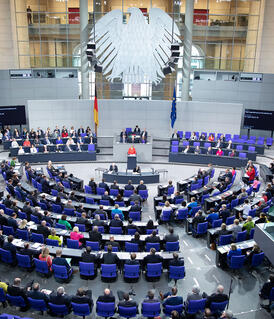Elections in Germany

Free and fair elections Elections Every four years, the parties stand in the general elections to the Bundestag. Traditionally, the turn-out is high in Germany, and following a high in the 1970s, when the turn-out was over 90 percent, since reunification it has been around 80 percent. 76.6 per cent of eligible voters took part… Read more › are an essential precondition for any democracy. The German Basic Law states that representatives must be elected through general, direct, free, equal and secret elections. Amongst other things, this means that all citizens have the right to vote, regardless of their sex or income. They must be able to vote freely and without influence, and every vote counts equally. It must also be guaranteed that every voter can cast their vote alone and without being observed.
The German Bundestag is elected every four years. Elections Elections Every four years, the parties stand in the general elections to the Bundestag. Traditionally, the turn-out is high in Germany, and following a high in the 1970s, when the turn-out was over 90 percent, since reunification it has been around 80 percent. 76.6 per cent of eligible voters took part… Read more › in the 16 states are usually held every five years. There are also municipal elections, such as for city councils. The Federal President Federal President The Federal President is the head of state of the Federal Republic of Germany. He represents the country in its dealings with other countries and appoints government members, judges and high-ranking civil servants. With his signature, acts become legally binding. He can dismiss the government and,… Read more › is not directly elected by the people, but by the Federal Convention, which consists of members of the Bundestag The Bundestag The Bundestag is made up of the elected representatives of the German people. In principle elections to the Bundestag are proportionally representative, with each party’s share of the vote in the election reflecting the number of seats it occupies in the parliament. But the electoral system also… Read more › and representatives from state parliaments.

